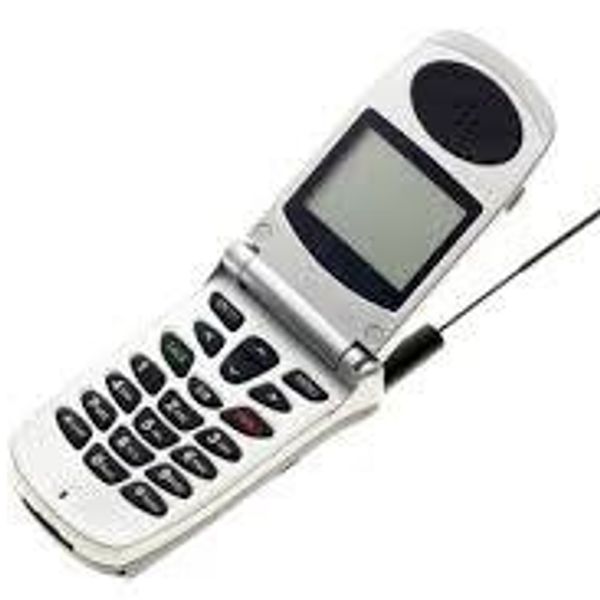When I was in middle school, I was part of a Christmas play. In this play, I was a young teenager whose parents had died a few weeks before the holiday and was taken in by her older sister. As a coping mechanism, this young girl that I played disconnected herself from reality and created her own world through her phone and the things on it. This character was full of attitude–rude, angry and all-around misunderstood. At the end of the play, however, she re-learns the meaning of Christmas as giving and spending time with those who love her, despite all the bad that may be in the world.
Today, I am constantly reminded of this character.
I was, like most people, an awkward middle schooler. I was going through some rough things and I had an extreme case of social anxiety. I didn't know what to do with myself and was terrified in most social situations. Over time though, I learned to curve my anxiety and handle being in places by hiding with my phone.
My first phone and a few of the ones after were very basic. They weren't "smart" at all–they had your basic features of calling, texting and taking (poor quality) photos. So, when I was uncomfortable in public, I would purposely make myself seem uninterested and busy by always checking my phone as if I were expecting an important notification (but really just looking at the time), drowning myself in text messages (half of which were fake) and going through my photos (and deleting the ones I didn't like).
Although doing these things helped me, bad habits were developed and I got into a fair amount of trouble.
There have been many instances where I was called out by friends and family for being on my phone too often. When I was younger I felt bad about the comments, yet I ignored them. As I got older, I heard it more and more, and I began to feel increasingly guilty about it. Being on my phone wasn't something I wanted to do, but as soon as I was put in a situation where I felt uncomfortable, I immediately went to it. I began to get into a mentality that if the people around me wanted to talk to me, then they would; if they didn't, then I would continue to avoid the situation at all costs.
That quickly turned into being on my phone not only around strangers, but around my close friends and family. If I didn't feel included, if conversation died down or if I didn't know what to say or how to react to something, my natural instinct would be to check my phone.
Now, as I've gotten older, my phone got smarter. I've gone from doing the three things listed above to having apps and rotating through various social media to pass the time. Because of that, I've gotten into more trouble. What used to be a simple coping method turned into something that I feel like I have to do in order to keep from showing physical and mental discomfort at home and in public.
Sometimes while I'm in public, I observe my surroundings and I see how the majority of people around my age are constantly on their phones. It makes me upset to see how much we are attached to our technology and how much we rely on it. After I think about it though, I realize that I am just like them. I'm on my phone just as much as everyone else, if not more. Noticing that drives me to want to use my phone less and less.
I am very aware of when I start to reach for my phone and I hate it. I'm not proud of it. I am constantly trying to avoid my phone, but it sometimes proves to be difficult. And this may come as a shock to some, but I look forward to every opportunity when I don't have to use my phone for an extended amount of time. I've reached a point where I am tired of using it as a means of hiding to avoid others. The next time you see me on my phone, just know that I don't want to be on it. I do, in fact, want to be present. I want to interact and be part of whatever we are doing. Encourage me to participate, make me feel included. I can guarantee that I'm just as annoyed about it as you are.





















